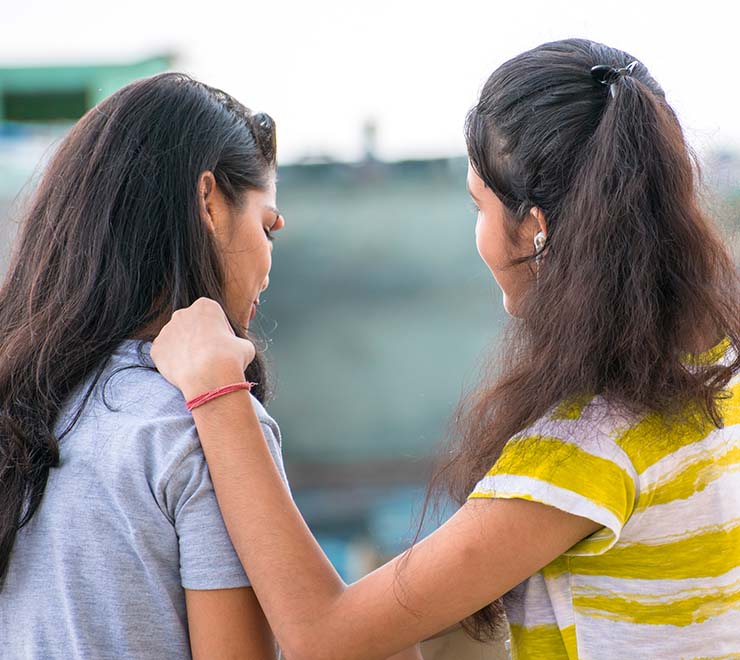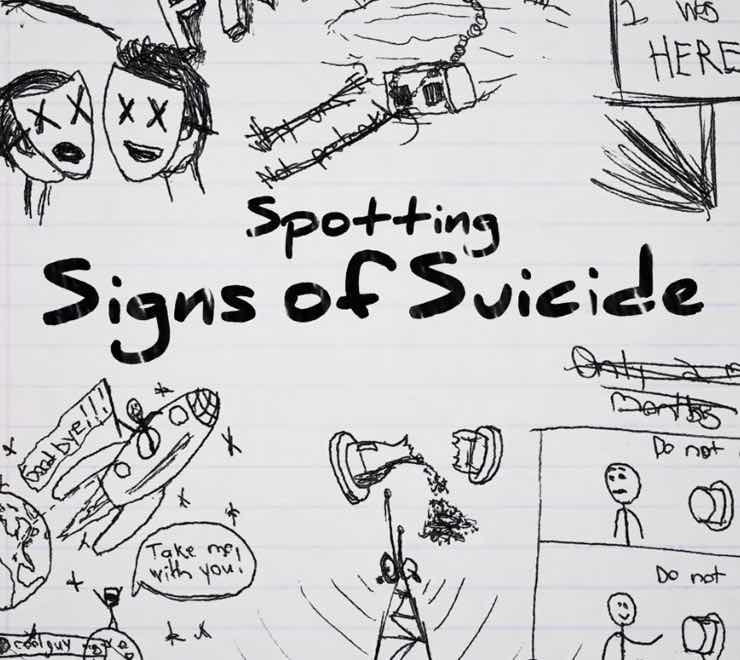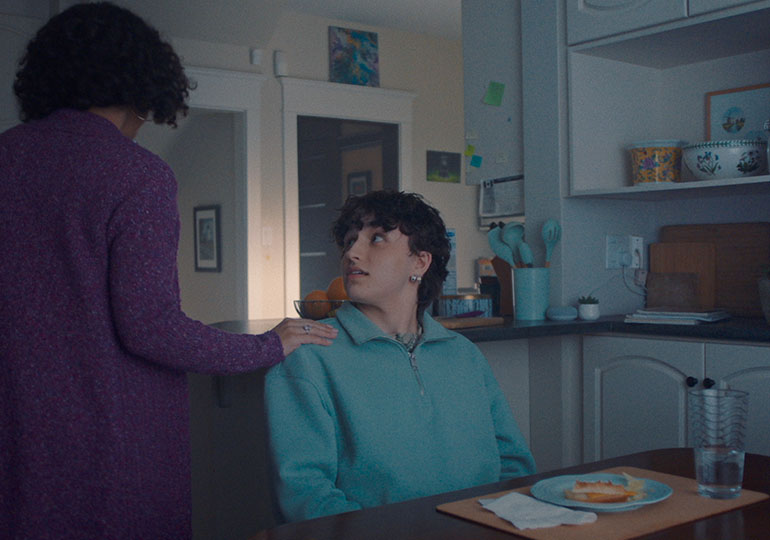Do you know what to do if you see someone who needs help? Here are some ways you can offer support online, at school and in public.
Knowing what to do when someone is in distress can be tough. If it is safe to do so, here are some ways you can offer support to someone who needs help online, at school and in public.
How to help someone online
If you notice someone posting worrying content on social media, websites or forums, here are a few things you can do to help:
- Reach out: try talking to the person to learn more about their post(s) through chat or private/direct message. You can say, “I noticed you sounded a little upset in some of your posts. Is everything OK?”
- Listen to them: the person may feel a lot better after they’ve shared their feelings with you. Listen to what they have to say and try to understand where they are coming from.
- Focus on the positive: help the person identify the positive things in their life. You can give them hope by helping them find the silver lining in their situation.
- Encourage them to get help: you can let the person know you’re worried about them, and that you’d like to offer them some ways to get support. If it’s a young person, you can share Kids Help Phone’s number and website with them as a starting point.
- Report the post(s): whether you know the person or not, it’s OK to report the post(s) that concern you to the social media platform or website itself. For example, Facebook’s suicide-prevention tools allow you to report posts directly. When you report a post, the person will be offered resources for support.
- Involve a safe adult: even if you’ve reported the post(s), it may still be a good idea to get a safe adult involved such as a parent/caregiver. They may be able to help intervene sooner, if needed.
- Contact emergency services: if you know the person (or if you can identify who they are and where they live) and you are worried they are in immediate danger, call 911. Try to keep the connection with the person going until a safe adult or emergency services is able to get in touch with them.
- Follow up: ask the person if they would like to stay in contact with you, and if it’s OK for you to follow up with
- Get support: helping someone through a difficult situation can be challenging. It’s important to make sure you get support for yourself, too, especially if you feel you’ve done all you can and the person isn’t open to your help. You can always call a Kids Help Phone counsellor at 1-800-668-6868 if you need to talk.
If you’d like to learn more about reporting posts on social media, here is some information for a few popular platforms:
How to help someone at school
If you see a friend or classmate at school who may need support, here are a few things you can do to help:
- Reach out: approach the person privately and try talking to them to learn more about their situation. You can say, “I noticed you seemed upset in class. Is everything OK?”
- Listen to them: sometimes, talking about a problem can help. Ask your classmate how they are feeling and listen to their reply to better understand their situation.
- Focus on the positive: if you know your classmate well, you can let them know something you like about them or something they are good at (e.g. maybe they are a good listener or a helpful classmate). Helping the person concentrate on the positive things in their life may help them to feel better about their situation.
- Include them: help the person get their mind off things by inviting them to participate in a group project, join an extracurricular activity or sit with you at lunch.
- Encourage them to get help: you can let the person know you’re worried about them, and that you’d like to offer them some ways to get support. Suggest they talk to a teacher or guidance counsellor they trust, or you can encourage them to contact a Kids Help Phone counsellor.
- Involve a safe adult: ask a teacher, guidance counsellor or principal to step in. They will be able to make sure the person gets the help they need.
- Contact emergency services: if the person appears to be in distress and in immediate danger of themselves or others, call 911. Stay with the person until a safe adult or emergency services has arrived.
- Follow up: the next time you see the person, ask them how they’re doing. Remind the person they’re not alone and there are people they can talk to.
- Get support: helping someone through a difficult situation can be challenging. It’s important to make sure you get support for yourself, too. You can reach out to a teacher or guidance counsellor. You can also call a Kids Help Phone counsellor at 1-800-668-6868 if you need to talk.
How to help someone in public
If you observe someone in public who appears to be in crisis, here’s how to approach them and offer support:
- Stay safe: you can only help someone else if you remain safe yourself. If the situation looks dangerous or if there is no one else around, seek out additional help before approaching the person.
- Reach out: approach the person slowly and calmly and try talking to them to learn more about the situation. You can say, “I noticed you seem upset. Is everything OK?”
- Be patient: the person may not feel comfortable opening up to a stranger, or may feel embarrassed about the situation. If the person doesn’t feel like talking, respect their decision.
- Stay calm: it can be stressful to see someone upset or to hear about a challenging situation they are dealing with. Try to remain calm and present in the moment.
- Encourage them to get help: let the person know you’re worried about them, and that you’d like to offer them some ways to get support. Offer to call a friend or family member for them, or if it’s a young person, you can share Kids Help Phone’s number so they can speak with a counsellor.
- Look for safety tools: depending on your location, there may be posters, hotlines or other resources you can use in the moment with the person.
- Involve a safe adult: if there are other people around, ask a bystander to help you with the situation. It may be helpful to give them specific directions like, “Please call 911.”
- Contact emergency services: if the person appears to be in distress and in immediate danger to themselves or others, call 911. Stay with the person until a safe adult or emergency services has arrived.
- Get support: helping someone through a difficult situation can be challenging. It’s important to make sure you get support for yourself, too. You can always call a Kids Help Phone counsellor at 1-800-668-6868 if you need to talk.
It’s common to want to help someone who needs support. However, it’s important not to take on more than you’re comfortable with. If you need to talk about what’s happening, you can always call a Kids Help Phone counsellor at 1-800-668-6868.
If it is safe to do so, there are ways you can offer support to someone who needs help online, at school and in public. Remember to prioritize your mental and emotional well-being and get support if you need it, too.












